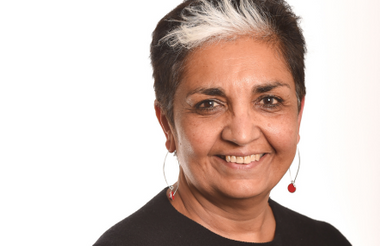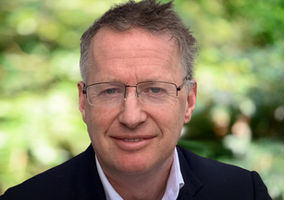We know from our personal and professional experience that when we do things together, we add richness, positive experience, and greater outcomes. However, we also know how difficult it is to convene and collaborate, particularly in a professional capacity, not only in the charity sector but also with those from other sectors who often co-exist alongside it.
Historically we have created an internal, competitive environment, chasing scarce funding and public sector contracts. That has often stopped us coming together to pursue common causes.
There was a time when the charity sector had a much stronger profile and was historically admired by other countries for our progressive not-for-profit culture and approach. This has seriously waned over time, and today we are scarcely mentioned in the media or by politicians in the way we deserve.
As we struggle to make sense of, and gain traction with, the current political and policy environment, there can be no better time than now to explore not only our collective value but also to seize the opportunity to work across sectors in order to attain greater impact.
In times of adversity, there are always opportunities to rethink the way things have been done traditionally and explore new approaches. There is now an absolute imperative that we come together to create a platform that enables us to challenge the status quo and seek answers for and on behalf of those we serve in our communities.
Change makers coming together
Over the last 18 months, I have been involved as a non-executive director on the board of the Conduit Club in Covent Garden, London. Our mission is to create a collaborative community that scales and accelerates solutions to the world’s greatest challenges. We believe strongly in the power of individuals as change makers and create an environment for exploration and collaboration. It has been interesting to be part of and explore how change makers across our society are coming together to explore and action changes, learning from each other and across the sectors. Of particular note have been these two examples:
- An event focusing on female genital mutilation (FGM) inspired a paediatrician to begin a conversation with her nursing and clinician colleagues responsible for safeguarding resulting in over fifty frontline healthcare professionals, who are now better equipped to address and mange girls and women at risk of FGM.
- A visit to Medyka on the Ukrainian border at the start of the war, the Ukrainian Sponsorship Pathway UK was set up as a charity which resulted in the government’s Homes for Ukraine scheme.
These are only two of many examples where joining forces, learning from each other and creating space to share and collaborate can bring about increased impact. The practical learning from each other as well as opportunity to translate experience in varying contexts brings creativity. At the Conduit, we strongly believe in the power of community, collaboration and collective energy that creates lasting and positive change.
Speaking up collectively
With charities under increasing pressure, it can be daunting to speak out, whilst the need to do so has become ever urgent; we need to find ways of working together that amplifies common causes.
Having a sense of how we all play a role in the eco-system that actively utilises that positioning can only add value to the sector as a whole and society generally. In addition, as evidenced before, it enables us to hold hands with those in parallel sectors and complimentary services.
I sense a strong appetite to assert our purpose as a sector and to reaffirm what it seeks to achieve. The sector was borne out of a drive to reform, to change things, to address root causes of long-standing issues facing our society. Speaking out is hard but there is a strong desire to embrace this activist style of leadership. This has become particularly evident through my recent involvement with the Charity Reform Group – a group of senior leaders from larger charities (supported by the Sheila McKechnie Foundation).
The group offers an opportunity for solidarity and standing together as we assert our view on the unique reforming potential of the charity sector. A shared platform to share intelligence, collaborate, and stand together will provide a stronger voice while we seek to engage with the government and the private sector. The Charity Reform Group looks to show brave leadership in this dialogue, and hopes to help the whole sector embrace its reforming role.
Related Articles












